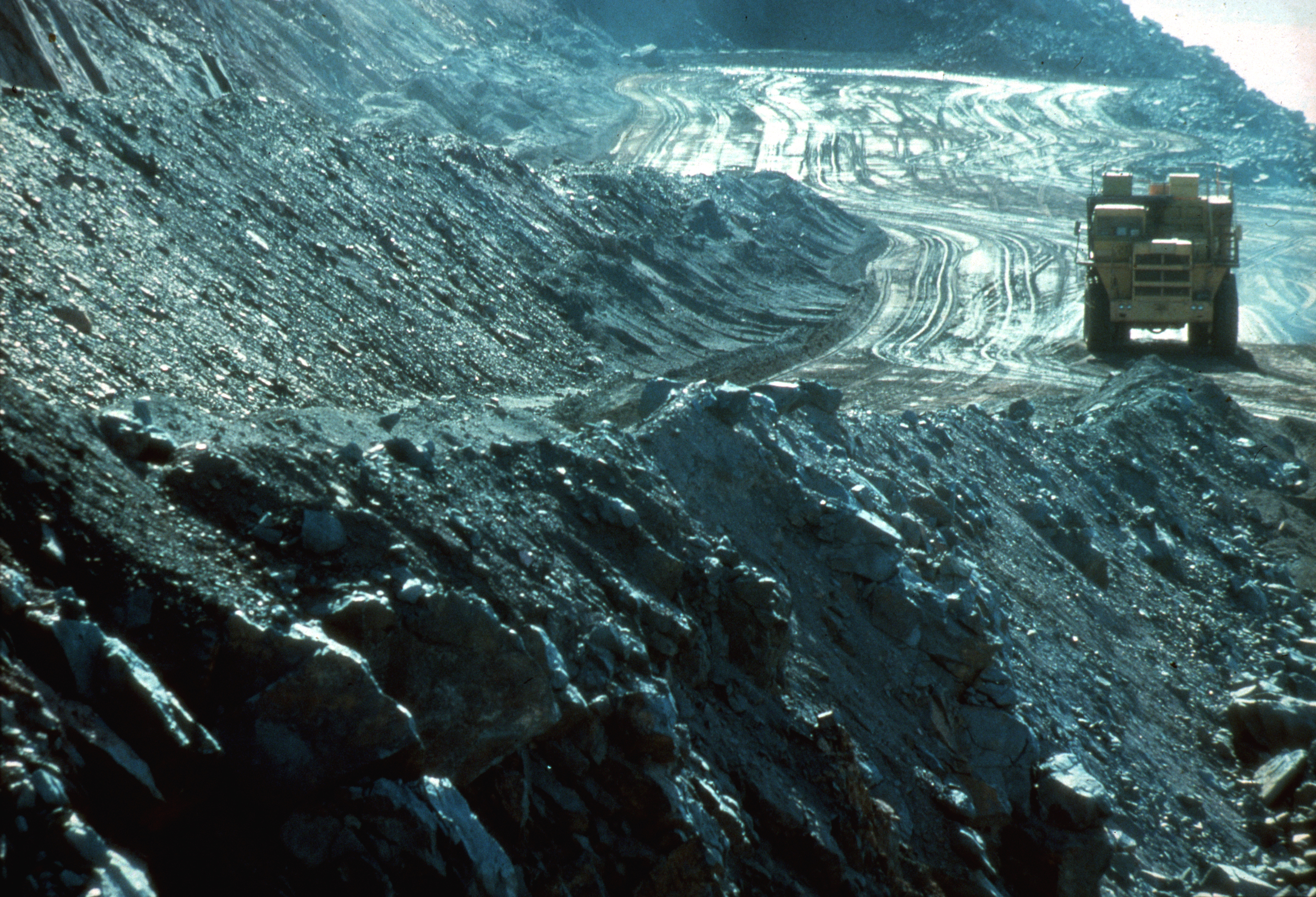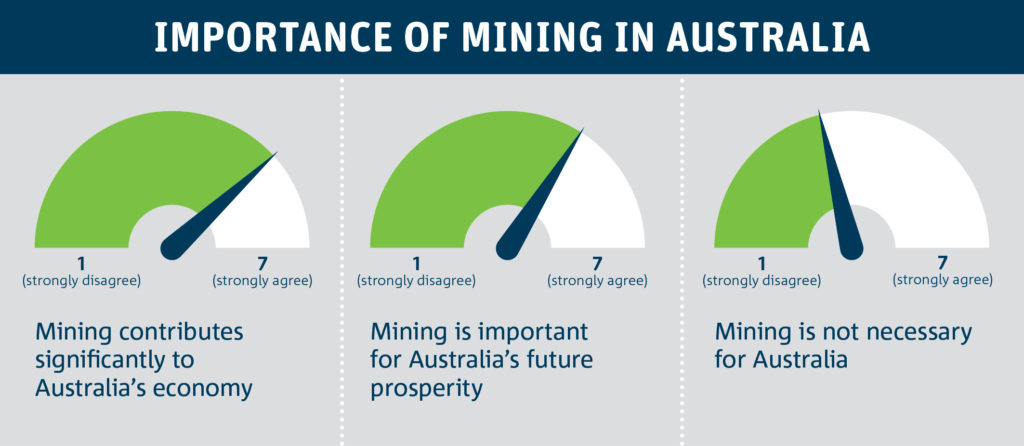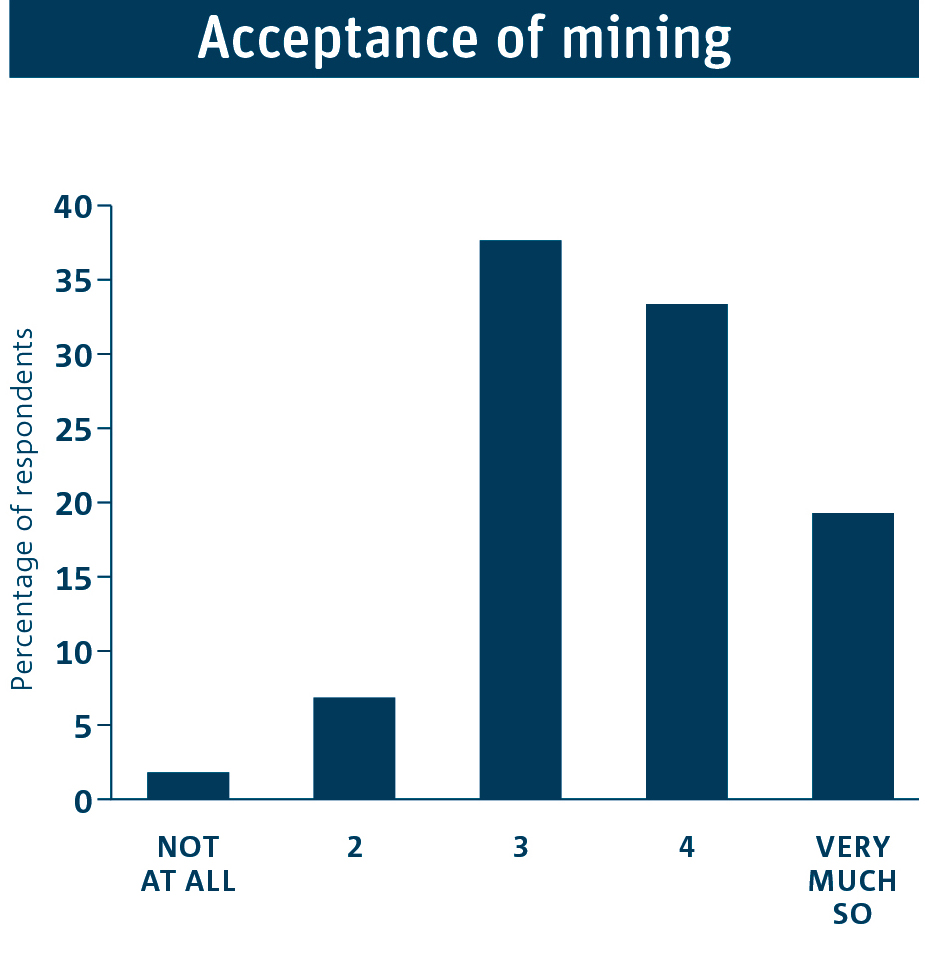A dump truck driving through an open cut mine
A dump truck drives through an open cut mine. Image by CSIRO Publishing
It’s no secret that mining is important to Australia, but that doesn’t necessarily make it popular with society at large.
We wanted to have a better understanding of what Australians think about mining, so in 2013/14 we conducted an online survey of 5,121 Australians.
The survey results have now been published as Australian attitudes toward mining: Citizen Survey – 2014 Results
Surveying community attitudes helps us to understand the impacts and benefits of mining, and how the relationship between the mining industry, government and society affects what Australia’s citizens think about it, and how much they accept the mining industry. It gives us insight into what needs to happen before mining has a ‘social licence to operate’ in Australia.
Scale chart showing community views on importance of mining
Is mining important to Australia?
We’ve gone beyond basic descriptions of attitudes towards the extractive industries, and looked at the relationship between mining and society in a more constructive and sophisticated way.
We wanted to know what goes into influencing trust in the mining industries, and the government, over mining developments. What, for example, is the relationship between good governance and social acceptance of the extractive industries? What are the key issues for a productive dialogue between the extractive industries and other stakeholders?
Bar chart showing Australians' level of acceptance of mining industries
How much do Australian accept the mining industries?
Some of the important findings from the survey are that:
- People view mining as central and significant to Australia’s economy and standard of living. They see it as a ‘necessary’ industry for Australia, which is important to Australia’s future prosperity
- Australians generally understand what it means to have a significant mining industry. Overall, they think that at present the benefits of mining outweigh its impacts.
- The more the benefits of mining outweigh the costs, the higher the level of acceptance. If this balance is perceived to move toward the negative impacts of mining, acceptance of mining will be eroded.
- Australians trust and accept the industry more when they believe the industry is listening to them and will respond to their concerns, when benefits from mining are shared equitably, and when the legislative and regulatory frameworks in place make them confident that industry will do the right thing.
- Governments and industry need to work with communities to earn and maintain the ‘social licence to operate’ and develop effective, constructive, mutually beneficial relationships.





3rd October 2014 at 11:40 am
It seems a basic mistake in the survey not to discriminate between various kinds of mining, as has been already mentioned. Did the team consult any social scientist to ensure they had an effective survey?
As scientists well know, the mining of fossil fuels, and in particular coal, are the major cause of unchecked greenhouse gases entering the atmosphere. To prevent disaster, strong, effective elimination of burning fossils fuels is necessary and urgent.
Did the survey have any hope of detecting the level of alarm in the community about this problem? I think not! What a wasted opportunity.
3rd October 2014 at 11:52 am
The authors ARE social scientists.
3rd October 2014 at 11:03 am
Interesting that it doesn’t distinguish between fossil fuel mining and the rest. They are too dissimilar to lump together. We SHOULD be mining metal ores and minerals as raw materials, we SHOULD be extracting petroleum to make durable plastic products, we SHOULD NOT be digging stuff up just to burn it. Lumping dissimilar things together in this survey lends the unnecessary fossil fuel miners the legitimacy of the necessary ore and mineral miners.
3rd October 2014 at 10:29 am
I am concerned that mining is discussed as a broad blanket issue, when the reality is we are talking about a variety of interests and huge multinational companies, exploiting resources with the sole purpose of achieving large financial profit (not community benefit). The current policies that govern mining appear to reflect a notion that all mining is beneficial to our economy and should be given full license to extract as they please – all the underlying regulators that supposedly exist to protect the community (EPA for example) are forced into a distant second place.
An example is the open cut coal mine and power station near Anglesea on Victoria’s Surf Coast – currently contributing negligible economic / social benefits to anyone except the US-based company Alcoa, and whoever may choose to purchase this outdated facility. The Victorian electricity market is currently over-supplied, the EPA shows no appetite whatsoever to regulate what is proven to be a massively polluting power station (producing 3x as much toxic Sulphur Dioxide as Hazelwood, a station 10X larger in capacity), and the state government has shown even less interest in this matter. This is an example of a community that is forced to suffer in the face of mining that is allowed to continue unimpeded, regardless of the cost.
I suggest that, similar to the comments above, surveys should be conducted assessing the attitudes to mining from those actually affected in person (rather than city dwellers who see this is a simple economic issue).
24th September 2014 at 2:52 pm
This survey started in 2013. If the same survey is redone now and covered those communities throughout Australian that live within mining zones you would have a different outcome. For instance, do the majority of people trust that QLD premier Campbell Newman, with his erosion of protective legislation and favouritism for the industry, will not impact the important tourism and agricultural industry economically and did this survey include the people who have already walked away from their farms. What about in Victoria where simple lack of regulation and monitoring allowed a fire to take hold in the Latrobe Valley and poison the air they breathed for over a month. These sorts of surveys need to be more refined. Currently, they are too generalised. When you have States that have a legislative system that can be corrupted and a regulatory framework that it totally inadequate to manage the industry we are in trouble. Unfortunately, most people in Australia are unaware how the system works and how non alignment of policy and crossover in jurisdiction equals > CHAOS!
23rd September 2014 at 10:26 pm
now interview 5000 blackfellas .. the responses will still have a diversity as it should but from a completely embedded perspective of what “Australia” has done to us and with us